Compression socks are a popular non-surgical treatment for improving circulation and reducing leg swelling. They're particularly beneficial for people with varicose veins, those who stand or sit for long periods, and athletes. But can wearing compression socks be harmful? If misused, even the best compression socks can potentially cause harm. To maximize their benefits and avoid risks, it's crucial to understand how to wear them properly and choose the right compression level.
Potential Risks of Wearing Compression Socks Incorrectly
Yes, wearing compression socks improperly can cause harm. If the socks are too tight or worn for too long, they can restrict blood flow rather than improve it. This can lead to complications such as:
- Restricted Blood Circulation: Overly tight compression socks can constrict blood vessels, counteracting their intended purpose. This can lead to numbness, tingling, or even deep vein thrombosis in severe cases.
- Skin Irritation or Infection: If the socks are not cleaned regularly or are too tight, they can cause skin problems like rashes or fungal infections. Those with sensitive skin or pre-existing skin conditions should be particularly cautious.
- Muscle Weakness: Relying too heavily on compression socks can decrease muscle function if the muscles become dependent on external support. This can be particularly problematic for athletes or active individuals, as it may weaken the muscles over time.
How to Wear Compression Socks Safely
Choosing the Right Compression Level
Selecting the correct compression level is essential for safe and effective use. Compression levels range from light to very high pressure, measured in millimeters of mercury (mmHg). Here's a quick guide:
- Light Compression (8-15 mmHg): This is suitable for mild swelling, tired legs, and those new to compression socks.
- Mild Compression Socks (15-20 mmHg) are ideal for managing minor varicose veins, reducing swelling in pregnant women, or enhancing athletic performance. They can be purchased over the counter and are a good starting point for those new to compression therapy.
- Moderate Compression (20-30 mmHg) is often recommended for varicose veins, post-surgery, or those at risk of deep vein thrombosis. Regular compression socks provide more support and are often used by healthcare professionals and athletes.
- High Compression (30-40 mmHg): Prescribed for severe varicose veins, lymphedema, and other serious conditions. It requires a prescription and should only be used under medical supervision.
- Very High Compression (40-50 mmHg): Used for severe medical conditions and under strict medical supervision. This level is rarely prescribed and only for the most severe cases of venous disorders.
Ensuring Proper Fit
The fit of your compression socks is essential for effectiveness and comfort. They should be snug but not excessively tight, as an improper fit can cause discomfort and worsen circulation issues.
A good starting point is to refer to a reliable guide to compression socks. This guide will help you understand the different compression levels and how to measure your legs correctly before purchasing.
Measuring Your Legs: Use a flexible measuring tape to measure around the narrowest part of your ankle, the widest part of your calf, and the length of your leg from the floor to the bend of your knee. This will help you select the correct size.
Checking the Fit: After you put on your socks, they should feel snug but not constricting. The socks may be too tight if you experience pain, numbness, or skin discoloration.
Tips for Safe Usage
- Do Not Sleep in Them: Unless expressly advised by a doctor, remove compression socks before bed. Your body doesn't need the same support level while lying down; wearing them at night can cause discomfort or even exacerbate circulation issues.
- Follow a Daily Schedule: Wear them during the day, especially during prolonged sitting or standing periods, and remove them at night to avoid potential complications.
- Monitor Skin Health: Check your legs regularly for irritation, rashes, or swelling. This is particularly important for individuals with sensitive skin or pre-existing skin conditions.
Who Should Avoid Compression Socks?
People with certain health conditions should not use compression socks without medical guidance. Conditions include:
- Skin infections or diseases
- Heart conditions
- Peripheral vascular disease
- Severe diabetes
- Nerve damage
Always consult a healthcare professional before using compression socks if you have any of these conditions.
What to Watch for When Using Compression Socks
How Can Wearing Compression Socks Be Harmful?
While compression socks offer many benefits, improper use can lead to complications. Here's what to watch out for:
- Discoloration or Numbness: If your skin turns blue or you experience numbness, it may indicate that the socks are too tight. This can lead to restricted blood flow, which is dangerous and counterproductive to the socks' intended use.
- Swelling or Tenderness: Swollen or tender legs can signify improper use or a need for a different compression level. If your socks cause pain or discomfort, consult a healthcare professional to reassess your needs.
- Red or Warm Veins can indicate inflammation or a possible blood clot. Remove the socks immediately and consult a healthcare professional. This is particularly crucial for those with a history of blood clots or varicose veins.
If you notice these symptoms, stop wearing the socks and consult your doctor to ensure you use the appropriate compression level and fit.
Other Things to Watch For
Wearing compression socks may cause chafing or bruising in people prone to dry skin or living in arid climates. Ensure the socks fit correctly and follow care instructions to avoid skin irritation. Additionally, older adults and those with sensitive skin should be cautious and check their legs regularly for signs of irritation or damage.
The Benefits of Compression Socks
Compression socks apply gentle pressure to your legs, promoting healthy blood flow and reducing the risk of blood clots and varicose veins. They are commonly used to:
- Prevent Swelling: Compression socks can help reduce swelling caused by prolonged sitting or standing. This is especially beneficial for people who work long shifts on their feet, like healthcare workers or retail employees.
- Improve Circulation: By encouraging blood flow back to the heart, these socks can alleviate discomfort and fatigue in the legs. This improved circulation also helps to prevent blood pooling in the veins, reducing the risk of developing varicose veins or deep vein thrombosis (DVT).
- Enhance Athletic Performance: Many athletes use compression socks, such as exercise socks, to reduce muscle soreness and speed up recovery by minimizing muscle vibration and reducing lactic acid buildup during and after exercise.
- Alleviate Cold Feet: For the Winter months, compression socks can help individuals suffering from cold feet due to poor circulation. Improving blood flow to the extremities can keep your feet warmer and more comfortable.
Frequently Asked Questions
When Should You Not Wear Compression Socks?
Avoid wearing compression socks if you have peripheral artery disease or skin infections without consulting a doctor.
What Are the Negative Effects of Compression Socks?
Improper use can cause skin irritation, restricted blood flow, or discomfort.
Can Compression Socks Make Swelling Worse?
Yes, if the compression level is too high or the socks are worn incorrectly, they can worsen swelling.
What Happens When You Start Wearing Compression Socks?
Compression socks improve blood circulation, reduce swelling, and alleviate leg discomfort.

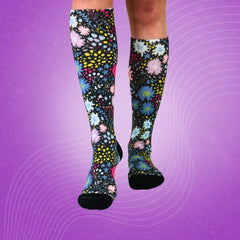
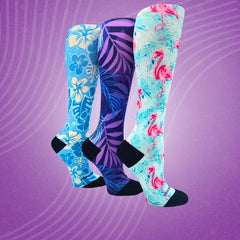
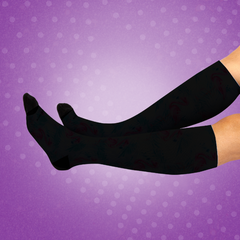
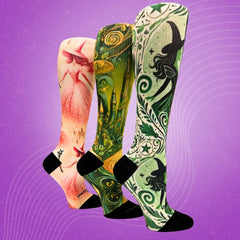
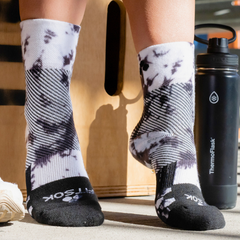
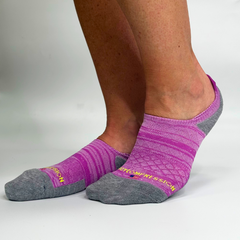

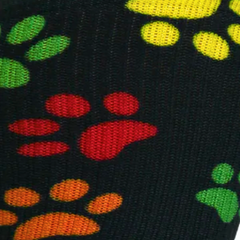
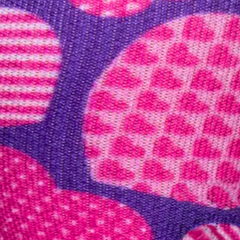









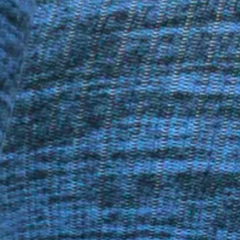
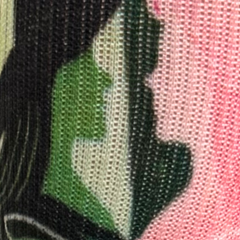
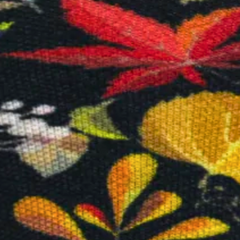



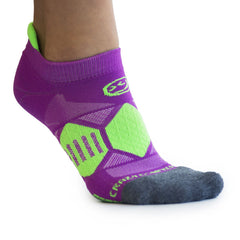

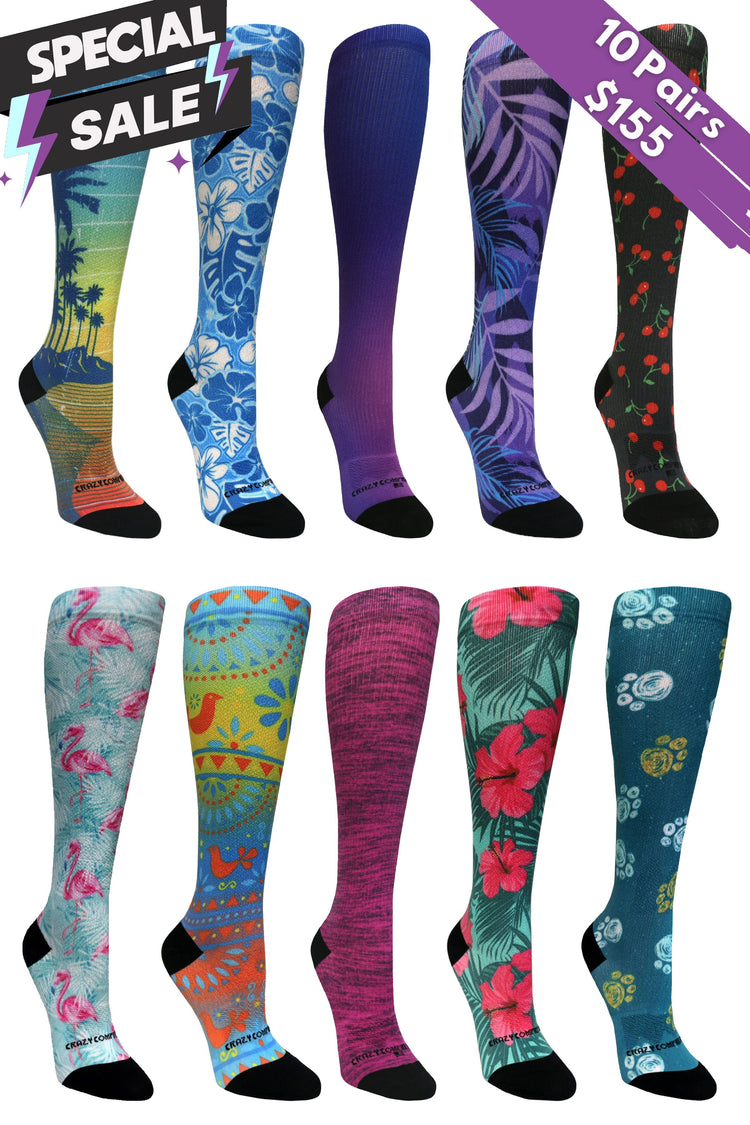



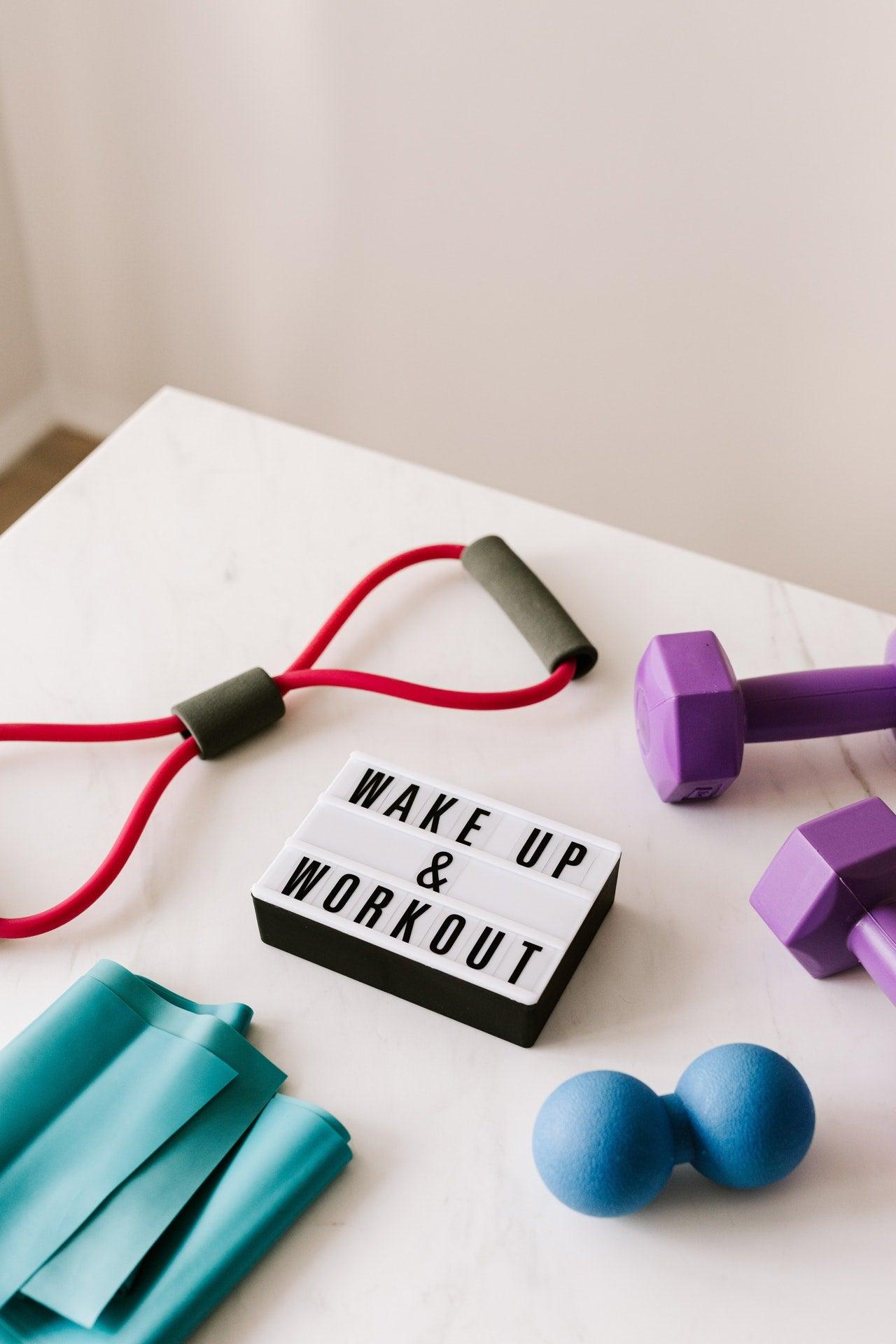
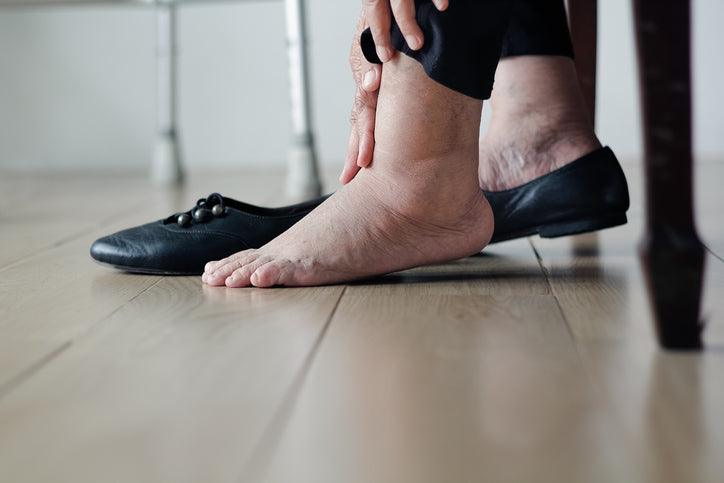
Leave a comment
This site is protected by hCaptcha and the hCaptcha Privacy Policy and Terms of Service apply.